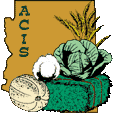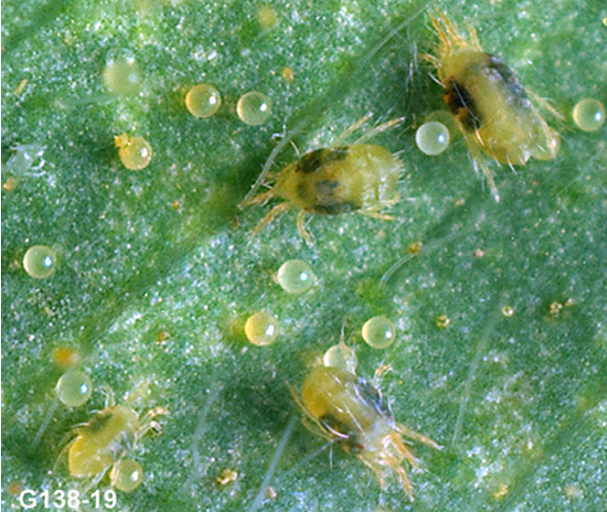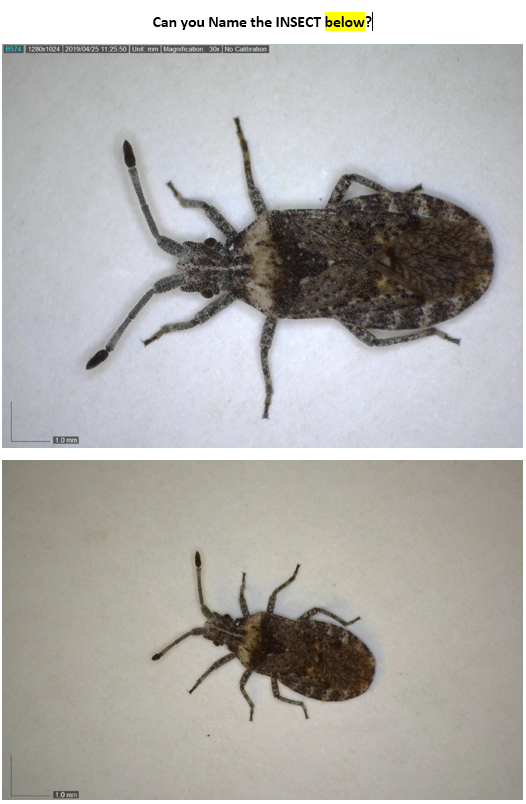
|
|
|
|

|
|||
|
|
|||
It’s that time of the year when I commonly receive calls concerning spider mites on melons. Twospotted spider mites, Tetranychus spp, are widespread on melon crops throughout the southwestern U.S, and in my experience, outbreaks are more common on watermelons than other netted and mixed melon varieties. However, problems can certainly occur on all melon types. Under ideal condition, spider mite populations can increase dramatically. The hot dry weather we are now experiencing can be favorable for mite infestations. For example, mites can go from egg to adult in about 37 days when temperatures average about 60° F, but at average temperature of 86° F, it only requires 7 or 8 days for them to complete their lifecycle. Several natural enemies (including predatory mites and thrips, minute pirate bugs and lacewings) play an important role in regulating mite populations below economically damaging levels. Predators can maintain mite populations in check by feeding on slowly developing mite populations. However, when temperatures become hot and dry, the mites can quickly out run the predator population due to their rapid reproduction. Good irrigation and fertilization management can enhance plant tolerance to mites. Although economic thresholds have not been adequately established for spider mites in the low desert, treatment with an acaricide is recommended when significant webbing can be found on leaves and predatory mites and thrips are absent. A number of effective miticides are available for melons including Agri-Mek, Oberon, Acramite, Miteus, Zeal and sulfur. If leafminers are present in the field, Agri-Mek is a good option. If whiteflies nymphs are beginning to build on older leaves, Oberon or Minecto Pro (abamectin+cyantraniliprole) may be an effective option. For more information on mites and their management please visit: Spider Mites on Melons. winged and wingless (apterous) aphids important in leafy vegetables and cole crops. | |||
| Back | |||
|
For questions or comments on any of the topics please contact Marco Pena at the Yuma Agricultural Center.
|
|||
|
Home |
Cotton
| Veggies |
Forages
| Grains
| Citrus |
Crop x Crop
Insects | Diseases | Weeds | Pesticides | Economics | News | Weather | Research | Photos | Contacts | General Info. Copyright © 2001 University of Arizona, College of Agriculture and Life Sciences Webmaster: Al Fournier (acis@ag.arizona.edu) |
|||


